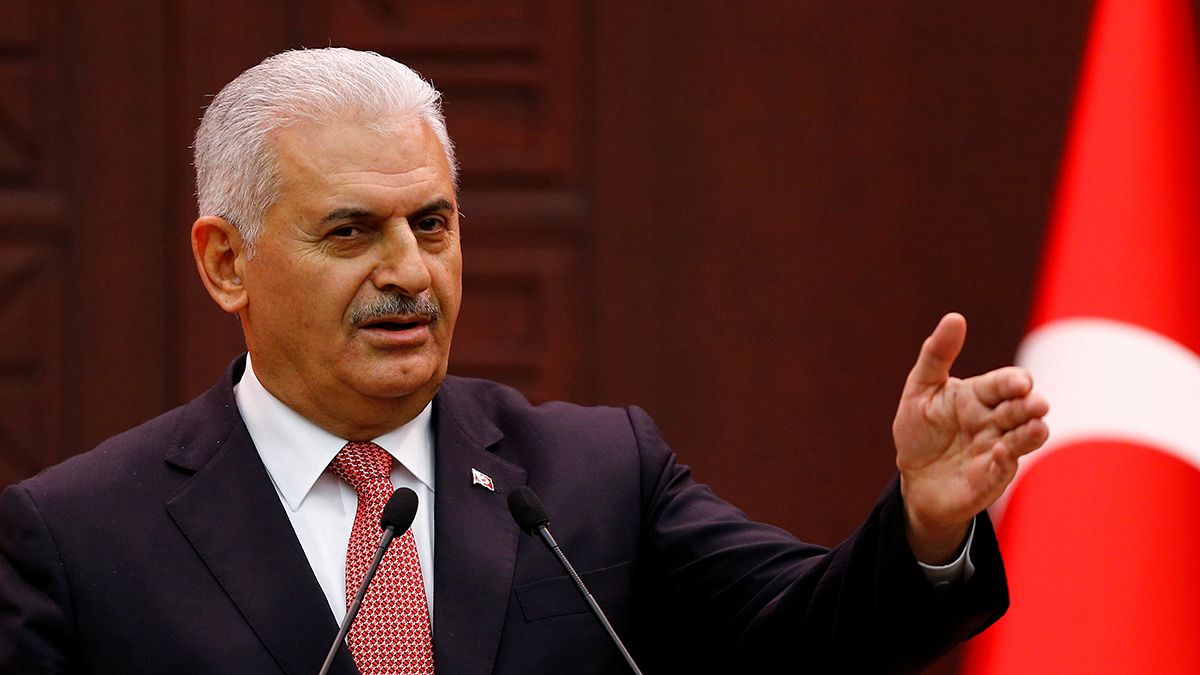June 27 was a day of dramatic change in Turkish Foreign policy.
June 27 was a day of dramatic change in Turkish Foreign policy.
At noon, Turkish Prime Minister Binali Yıldırım announced a deal with Israel, normalising relations after the big rift over Gaza and the flotilla crisis of 2010.
While Turkey was busy discussing this move, the Kremlin announced a letter from Turkish President Erdogan conveying his condolences to the family of the pilot who was killed in action on November 24, 2015 by the Turkish Air Force. This was regarded as an “apology” and endorsed by Russia. Turkey’s president will talk to his Russian counterpart over the phone for the first time since last November.
These two diplomatic gestures came on the same day, and present a paradigm shift in Turkish foreign policy, from idealism to pragmatism.
Breaking isolation
Turkey and Israel have long been discussing ways to normalise relations. In March 2013, Israel’s Prime Minister apologised for the killing of nine activists on the Mavi Marmara ship in 2010, accepting to pay compensation to the families of the victims. But Turkey’s third demand was hard to swallow for Israelis: the removal of the Gaza blockade. It took three years for Turkey to accept this reality, and Ankara agreed on easing the Gaza embargo instead of removing it.
After a hardline ideological stand against Israel, just how Turkey came to this point is more related to recent geopolitical shifts in the region. The effective break up of Syria and Iraq, poses an enormous threat to Turkish security. An escalation of terrorist attacks, fighting on two fronts against the PKK and ISIS, having been in trouble with Russia and the EU, the refugee crisis and other unexpected changes forced Turkey to break the isolation it found itself in and Ankara decided to start with Israel.
By normalising ties, Turkey hopes to balance Iran, to neutralise the Jewish lobby in the West and in the long run develop a strategic partnership with Tel Aviv with regards to security, intelligence and energy. Israel shares the same concerns about the region and they also want to balance Iran, which is now a Mediterranean power.
Netanyahu: The reconciliation deal with Turkey is of Strategic importance
— (((Barak Ravid))) (@BarakRavid) June 27, 2016
Balancing the West with Russia
Although Turkey is part of Western security institutions like NATO, Ankara’s relations with the US and European countries have always been problematic. Turkey used its relations with Moscow to counterbalance the US. Since the downing of a Russian jet at the Syrian border, Turkey lost this leverage against Washington at a time when Turkey is trying to link the PKK with American-supported Syrian affiliate the PYD. Because of the crisis with Russia, Turkey had to stop its air operations over Syria and this landed Turkey in trouble. Now the PYD – a terrorist organisation in Ankara’s books – is on the move near the Turkish border in Syria. By sending a letter of sorrow, which was regarded as an “apology” by Moscow, Turkey gave itself room to act in Syria and balanced the US with Russia again. Peace with Russia will also boost the Turkish economy and tourism and help Turkey to secure its energy needs.
The President of Turkey expressed sympathy and deep condolences to the family of the killed Russian #Su24 pilot
— President of Russia (
KremlinRussia_E) <a href="https://twitter.com/KremlinRussia_E/status/747421759331176448">June 27, 2016</a></blockquote> <script async src="//platform.twitter.com/widgets.js" charset="utf-8"></script> <blockquote class="twitter-tweet" data-lang="en"><p lang="en" dir="ltr">Presidential spokesman <a href="https://twitter.com/ikalin1">ikalin1: “Turkey and Russia have reached an agreement to improve bilateral relations.” #Breaking— Doğan Eşkinat (@doganeskinat) June 27, 2016
Selling the deals
All of Israel, Russia and Turkey are trying to sell the deals to their polarised electorates. In Turkey, not only opposition forces but also hardliners within the ruling AK Party have strongly criticised the deal with Israel. The Turkish public had rallied against Israel during the Israeli operations in Gaza and following the killing of the Turkish activists. It seemed a tall order to get support for the deal from Turks, but the latest security issues and Turkey’s isolation helped the government to convince the people. On the other hand, the Turkish NGO the IHH still wants to continue criminal cases against Israeli officials.
Biz, Filistinlilerin haklarına halel getirecek ve Mavi Marmara şehitlerinin ruhlarını incitecek hiçbir şartı asla kabul etmedik, etmeyiz.
— Recep Tayyip Erdoğan (
RT_Erdogan) <a href="https://twitter.com/RT_Erdogan/status/747515309586788352">June 27, 2016</a></blockquote> <script async src="//platform.twitter.com/widgets.js" charset="utf-8"></script>In Israeli media, Netanyahu is also under fire due to the agreement. Both governments try to present the deal as victory for themselves. <blockquote class="twitter-tweet" data-lang="en"><p lang="en" dir="ltr">Prime Minister Netanyahu's statement regarding the agreement between Israel and Turkey<a href="https://t.co/I0NZn1yOyv">https://t.co/I0NZn1yOyv</a> <a href="https://t.co/Vn2BlHHKei">pic.twitter.com/Vn2BlHHKei</a></p>— PM of Israel (IsraeliPM) June 27, 2016
The Russian question is a similar one. The Turkish Presidency has stressed that it did not use the word “apology” for the downing of the Russian jet, although Russia recognises it as such.
More expected
After these two dramatic moves now many analysts in Turkey have turned their attention to Egypt and wonder whether Turkey will attempt a similar move with President Al-Sisi and try to mend ties with this important Arab state in the region.
